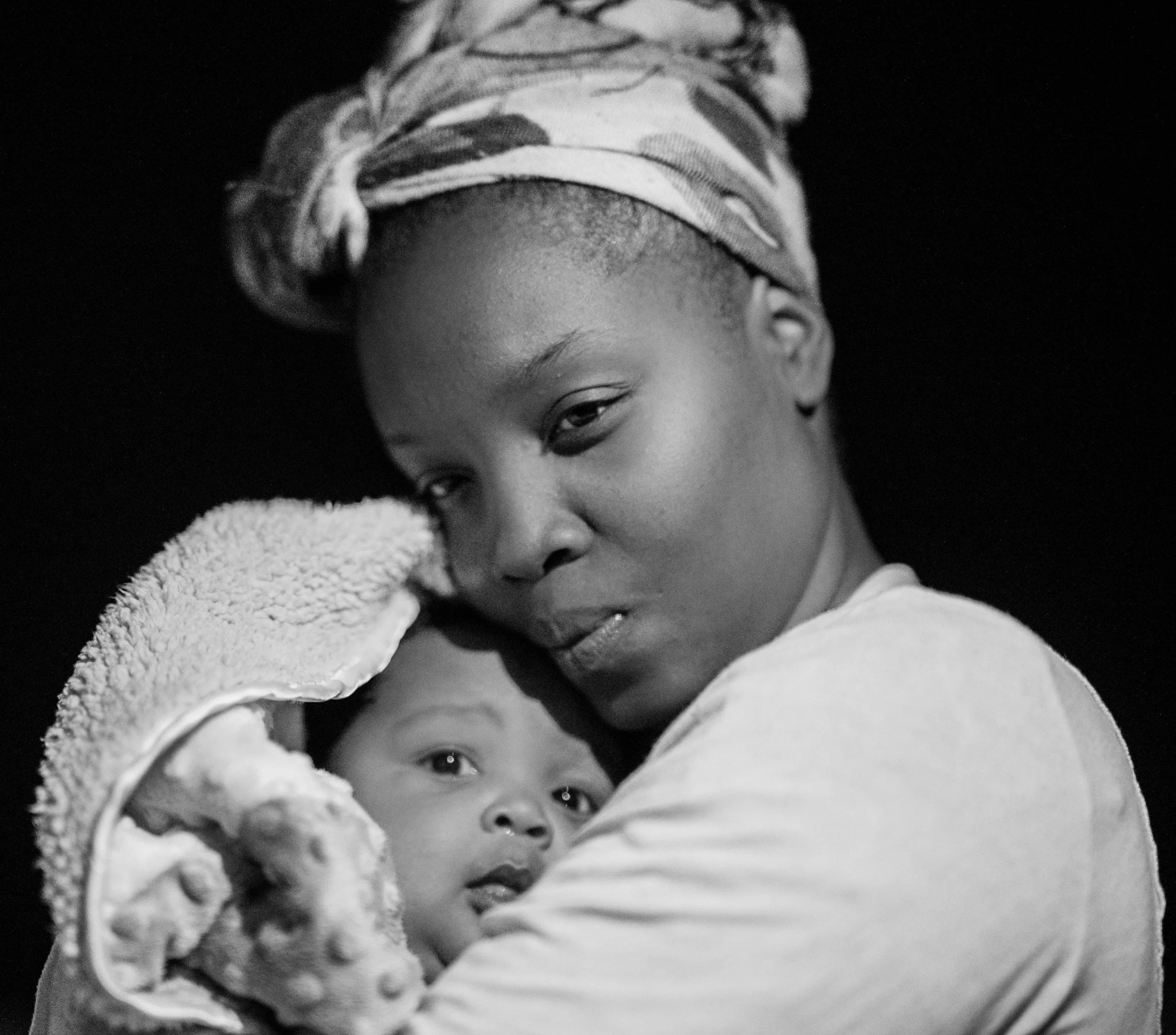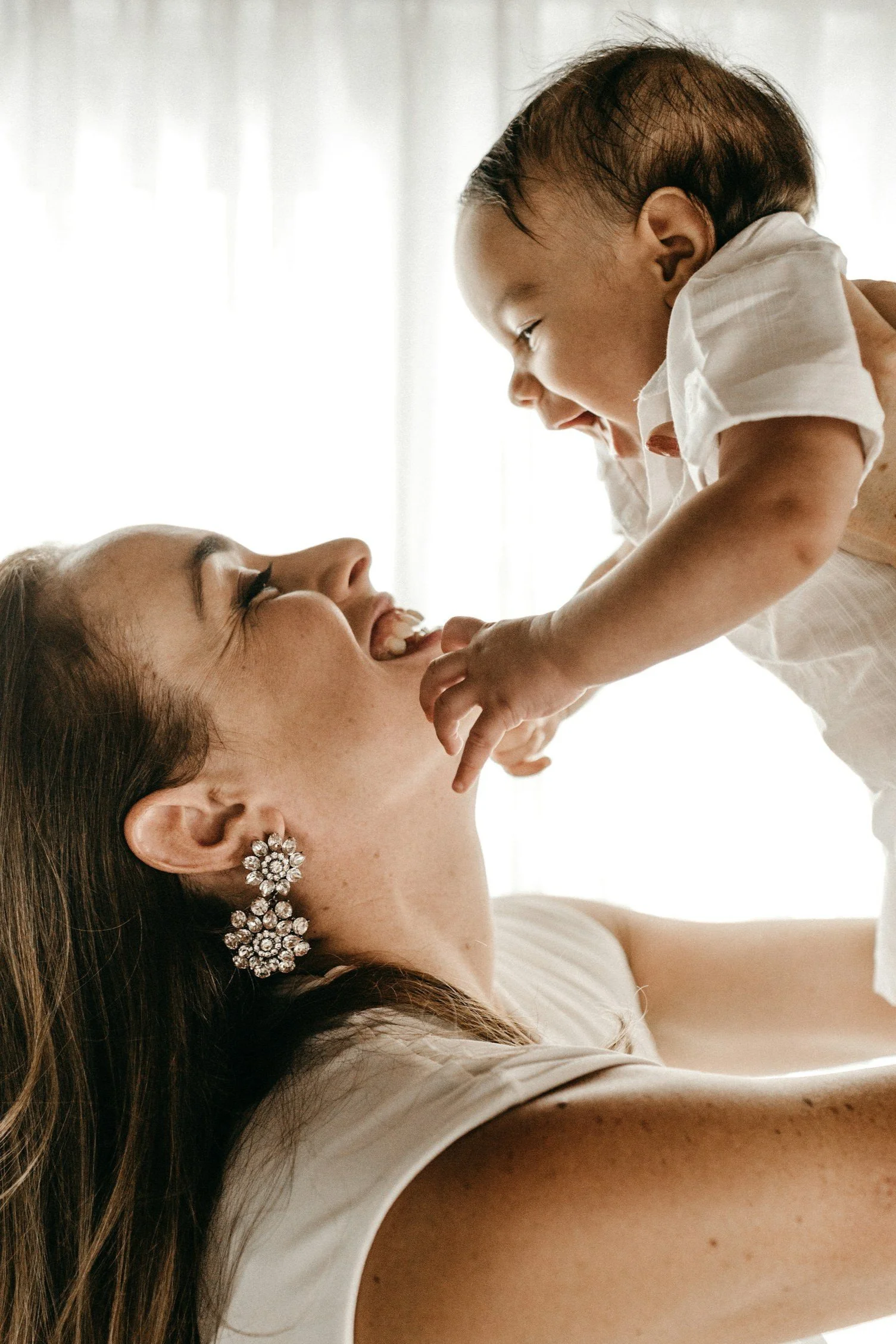Navigating Mother’s Day with a Strained Mother-Daughter Relationship (Through an Attachment-Based Lens)
Mother’s Day can be a beautiful holiday filled with flowers, brunch, and heartfelt cards—but for many, especially those with complicated or strained relationships with their mothers, it can also stir up a lot of emotional tension.
If you’re someone who feels a pit in your stomach as Mother’s Day approaches, you’re not alone. As an attachment therapist and coach who works with women and moms, I hear this all the time. “I want to honor my mom because I should, but being around her is draining.” Or, “I don’t feel like I can be honest about my experience growing up—especially on a day that’s supposed to be about gratitude and celebration.” Not to mention that finding a card that actually fits your experience and feelings about your mother is almost impossible.
Throw in the added layer of becoming a mom yourself, and suddenly Mother’s Day becomes a logistical and emotional marathon. You want to be celebrated (hello, can someone else please schedule the brunch?), but now you’re expected to also honor your own mom, your mother-in-law, maybe your grandma too… it's like Mother’s Day becomes everyone else’s holiday but your own. It’s enough to make you want to cancel the whole thing and hide under a blanket with a coffee and a donut.
Let’s talk about how to navigate this day when your relationship with your mom isn’t picture-perfect and how to hold space for your experience and needs, too.
Understanding the Attachment Layer
Attachment theory tells us that our earliest relationships—especially the one with our primary caregiver (like our mother)—shape how we experience safety, love, boundaries, and emotional regulation in relationships.
If you had a mother who was inconsistent, emotionally unavailable, overly critical, or enmeshed, it can deeply affect how you relate to others, and yourself, as an adult. Mother’s Day can resurface feelings of longing, grief, guilt, or resentment, depending on the nature of your relationship.
Sometimes we feel pressured to ignore that reality in favor of “keeping the peace” or not “being ungrateful.” But honoring your experience doesn’t make you a bad daughter. It makes you an honest one—and an emotionally healthy one, too.
Let’s Normalize the Mixed Feelings
It’s okay to love your mom and also feel hurt by her.
It’s okay to not want to spend the day with her, even if everyone else is doing brunch and group photos.
It’s okay to grieve the mother you wish you had—even if you have a relationship with the one you do.
Mother’s Day doesn’t erase the complexity of your history. In fact, for many, it highlights it.
Tips for Navigating Mother’s Day with a Strained Relationship
1. Give Yourself Permission to Choose
You do not have to spend Mother’s Day with your mom if doing so compromises your emotional well-being. Give yourself full permission to celebrate (or not celebrate) in a way that feels right for you. That might mean sending a card but skipping the in-person visit, setting a time limit, or even choosing not to engage at all.
2. Anticipate Triggers and Prepare
If you know you’re going to be around your mom and that certain comments or behaviors tend to trigger you, prepare in advance. Set mental or physical boundaries. Have a support person you can text. Limit how long you stay. You don’t owe anyone unlimited access to your emotional energy just because it’s a holiday.
3. Create a Ritual for Yourself
If Mother’s Day brings up sadness or grief, carve out time for your own ritual, like something to honor the little girl in you who wanted more and deserved more. That might be journaling, lighting a candle, looking at childhood photos with compassion, or doing something nurturing just for you.
4. Let Yourself Be Celebrated as a Mom
If you’re a mom, it’s easy to get caught in the cycle of people-pleasing and over-extending yourself on Mother’s Day—trying to coordinate gifts for your mom, your partner’s mom, and maybe even plan your own celebration (which kind of defeats the purpose).
It’s okay to say:
“This year, I want to keep it simple.”
“This year, I’d love to focus on my own little family.”
“This year, I want to feel celebrated too.”
Seriously, why does being a mom mean I’m suddenly responsible for even more Mother's Day logistics?! Someone explain. 😂
Final Thoughts
Mother’s Day can be a mix of joy, grief, resentment, and love—all wrapped into one messy bow. When your relationship with your mom is complicated, it’s okay for the day to be complicated too. You don’t have to put on a performance or betray your truth to make others comfortable.
And if you’re a mom now yourself, you get to start a new narrative. You get to model emotional honesty, boundaries, and self-respect for your own children. That’s powerful. That’s healing. That’s worth celebrating!
No matter how you choose to navigate Mother’s Day this year, may it be rooted in self-compassion, secure boundaries, and the recognition that you matter too.
About the Author
Hannah Dorsher, MA, LPC, NCC, CAT, EMDR is a Therapist and Relationship & Attachment Coach in Fort Collins, CO who specializes in helping those struggling with anxiety, self-esteem, toxic/unhealthy relationships, attachment issues, navigating motherhood, break ups, and trauma. I provide therapy with clients in CO and FL, and I provide attachment coaching for dating, marriage & motherhood to clients across the globe!! Check out my Anxious Attachment course: Anxious to Secure—Healing Your Anxious Attachment—here




